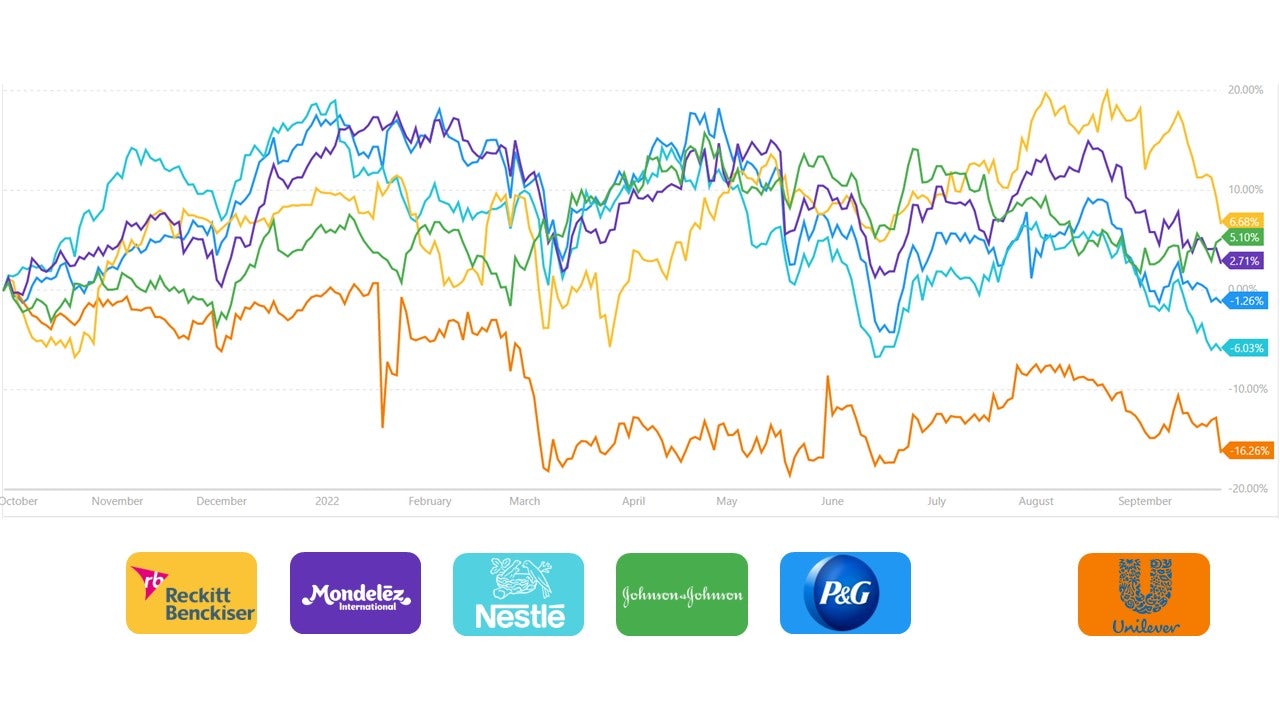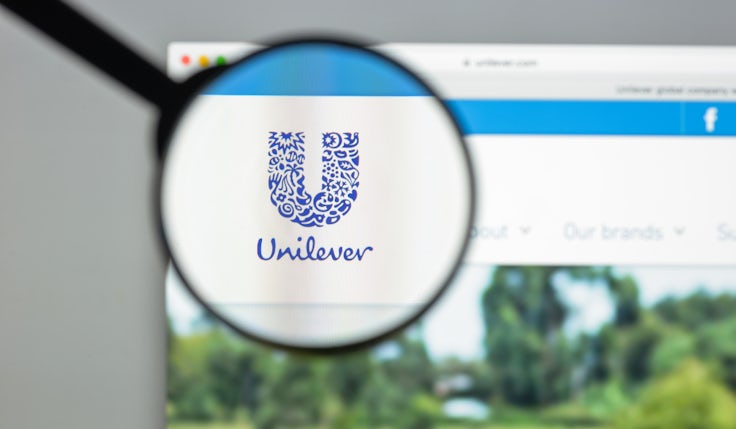Even if Unilever placates its investors, it still has Ben & Jerry’s to deal with
With CEO Alan Jope set to leave, Unilever faces battles not only with investors aiming to deprioritise brand purpose, but with its own Ben & Jerry’s brand, which is suing it for abandoning purpose commitments.

There are many reasons for the premature announcement of Alan Jope’s retirement. The Unilever CEO will step down at the end 2023 after five long years in charge. The date of his retirement is no surprise, but announcing it 15 months before it happens sheds some light on the contentious nature of his reign.
Most analysts greeted Monday’s announcement as positive news for Unilever. The company has struggled with growth and many held up the botched attempted acquisition of GSK as the final nail in Jope’s leadership coffin. But it was his championing of brand purpose that should occupy most marketers thoughts this week.
As an industry, we have bought into a superficial, underwhelming premise with an embarrassing lack of rigour. Unilever and Jope illustrate all the perils of purpose, and things are only going to get worse from here as the company faces up to significant threats from within.
Terry Smith of Fundsmith Equity Fund started the trouble in January. In his annual letter to investors, Smith expressed frustration with Unilever’s management team, which he thought “obsessed with publicly displaying sustainability credentials at the expense of focusing on the fundamentals of the business”. Smith, who had almost a billion quid invested in Unilever at the time, ground his equity axe especially hard against Hellmann’s mayonnaise and, in doing so, probably delivered the marketing quote of the year.
“A company which feels it has to define the purpose of Hellmann’s mayonnaise has in our view clearly lost the plot,” Smith concluded. “The Hellmann’s brand has existed since 1913 so we would guess that by now consumers have figured out its purpose (spoiler alert – salads and sandwiches).”
Five challenges awaiting Alan Jope’s successor as Unilever CEO
It was an oversimplistic and slightly unfair critique of Unilever, but had a devastating impact on the company’s reputation. Not among marketers – where purpose remains the unquestioned king of the branding castle – but among the financial analysts and equity markets, which observe Unilever’s poor performance relative to its FMCG peers and smell distraction and a fundamental inability to respond to basic problems.

Things always look their darkest just before it goes completely black. A bigger and more dangerous brand purpose issue has been simmering away for the last 12 months and is about to explode. To understand why, you have to look back more than two decades to one of Unilever’s finest moments. In 2000, when the company acquired Ben & Jerry’s, it did so with a unique agreement that was widely hailed at the time – and since – as a textbook example of how to acquire and then manage a differentiated brand within a broader portfolio.
Despite the deal being a total acquisition of the ice cream brand, the existing board members of Ben & Jerry’s, along with two Unilever executives, agreed to form an independent board of directors within Unilever to steward the brand and ensure its social mission was maintained and protected. The eleven board members remain responsible for all elements of the brand’s operation and ensure its integrity.
When there was a discussion about wage rises among the Ben & Jerry’s factory workers, for example, the independent board stepped in and specified a generous living-wage policy for all employees. Crucially, this independent board can veto any decision that contradicts the brand’s social mission and its powers are enshrined in perpetuity. It’s never going away.
When you position on purpose and then abdicate the responsibility to follow through on that purpose, you must expect repercussions.
For 20 years, this unique operating model has not only worked but worked beautifully. Ben & Jerry’s has flourished in branding terms, profit terms and its ability to continue to operate as a brand with a genuine social conscience. Over the years, I must have been asked a dozen times for examples of brands that had been successfully acquired by holding companies and then grown in line with the acquired brand’s positioning. Each time, Ben & Jerry’s was the first example I would cite. But then, in 2021, things started to go awry.
In July of that year, the brand pulled all its sales and distribution from the Palestinian territories occupied by Israel. The brand did this because it claimed selling ice cream in these contested regions was “inconsistent with our values”. The move caused an immediate crisis in Israel, where Ben & Jerry’s is, by some distance, the most popular premium ice cream brand in the country.
Unilever looks to calm Ben & Jerry’s row as it ramps up marketing spend
Israelis love their ice cream, the brand is founded by Jews and almost all its flavours are kosher. But the move to withhold supply from what Israelis consider to be part of their country caused uproar. Challenged with accusations of antisemitism, Ben Cohen explained: “If I care about the people in Palestine just as much as I care about the people in Israel, is that antisemitic?”
But, despite the announcement, AQP, the licensee for Ben & Jerrys in Israel, continued to supply the occupied territories with ice cream. What followed was a 12-month stand-off that only ended when Unilever sold the Israeli licence for Ben & Jerry’s to Avi Zinger, the owner of AQP. Under the terms of the sale, Zinger could continue to sell the brand across all of Israel but only using the Hebrew versions of the product name and packaging. Nothing in English. Unilever also stipulated that it wanted no licensing income from the resulting deal.
It was Unilever’s best attempt to step away from a mounting crisis. But the sale had not been approved by Ben & Jerry’s independent board, whose members were still fuming about its ice cream being sold across the occupied territories. In an unprecedented move, Ben & Jerry’s filed a lawsuit against its own holding company. The suit claims that the sale of the licence violated the terms of Unilever’s 2000 agreement and the authority of its independent board.
It is an impending crisis that could do significant reputational damage to Unilever. Indeed, you could not concoct a more potentially damaging scenario. That’s partly because Unilever is the real deal. They may have disappointed investors. They may have taken their purpose agenda to ludicrous levels of naïve application. But they are genuine, committed executives trying to find a better model for 21st-century business. And, while that’s admirable, it also leaves the company in a particularly vulnerable position.
If Ben & Jerry’s had been owned by Nestlé or Reckitt, none of this would have been difficult. But when you position on purpose and then abdicate the responsibility to follow through on that purpose, you must expect repercussions.
By attempting to dispose of its Israeli license and go quietly back to business, [Unilever] has set up an intractable collision with one of its most important brands.
KLP, the giant Norwegian pension fund, is one of the biggest investors in Unilever. Its head of responsible investments Kiran Aziz put it best: “Unilever has bowed to pressure and is putting profits over human rights in stark contrast to Ben & Jerry’s, which took a principled stance against the Israeli government’s illegal and brutal occupation.”
And the criticism demonstrates the inherent, uniquely precarious position that Unilever now finds itself in. One major investor, Fundsmith, despairs because the company focuses on purpose at the expense of profit. Another, KLP, has the same degree of disappointment because the company has opted for profit over purpose. Unilever is surely realising that, not only is the “purpose is profitable” approach championed by Alan Jope untrue, it leads the company into potentially dangerous situations like the West Bank with no clear direction out of the trouble.
And, make no mistake, this is trouble.
Brand activists
One of the oldest precepts of brand management is ‘do not fuck with the founders’. In the case of Jerry Greenfield and, especially, Ben Cohen, the line should be underlined in red ink. Don’t mistake the unkempt hair and dungarees for anything less than brilliant brand leaders who were experts in social media and community engagement long before such things even existed. This is a brand built from campaigning. The ability to cause a ruckus and ultimately win the day is part of the DNA of Ben and Jerry’s.
It’s ancient history now but, back in the 1980s, food giant Pillsbury tried to stop Ben & Jerry’s from growing its distribution at the expense of Pillsbury’s star brand Häagen-Dazs. The Pillsbury sales teams threatened its distributors that, if they also sold Ben & Jerry’s, each would lose access to the much bigger Häagen-Dazs product.
“We believed that Pillsbury’s actions were illegal,” Cohen later recalled, “but we knew that in a strictly legal fight we’d run out of time and money long before Pillsbury would. Our only option was to rely on our customers and the media to pressure Pillsbury into backing off.”
The brand began a legendary campaign featuring the slogan ‘What’s the Doughboy afraid of?’, referring to Pillsbury’s famous brand mascot. Every ice cream tub featured the slogan, along with a Doughboy Hotline. Everyone who called got a Doughboy Kit with protest letters addressed to the Federal Trade Commission and the chairman of the Pillsbury board, and a bumper sticker.
The campaign generated enormous publicity and, by targeting the giant Pillsbury corporation rather than just Häagen-Dazs, Cohen pulled off a masterful double-coup. First, it suddenly meant that Pillsbury had more to lose, given its whole portfolio of brands was now being named and shamed. Second, the juxtaposition of a giant mega company next to two hippies with hand-drawn placards and homemade ice cream catapulted Ben & Jerry’s to national prominence in a manner that was perfectly on-brand.
Thanks to Ben and Jerry’s shrewd campaigning, Pillsbury’s attempts to constrain the brand ultimately had the opposite effect. And there is every reason to suspect the same fate now awaits Unilever. By attempting to dispose of its Israeli license and go quietly back to business, it has set up an intractable collision with one of its most important brands. A brand seasoned and adept at campaigning. A brand that illustrates the relative weakness and naivety of Unilever’s own half-arsed approach to brand purpose. A brand that will fearlessly make trouble for its parent company for months to come.







Comments